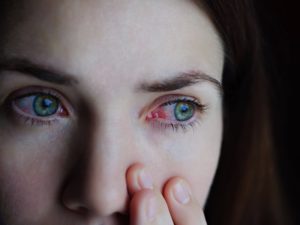
(Courtesy: Shutterstock)
(Kevin Loria, Business Insider) – Sleep deprivation is no joke.
Many people might think they can get by with a short amount of sleep during the week — maybe making up for it on the weekend — but those people might be surprised by just how serious a problem sleep loss really is.
Even though the NIH recommends that adults get seven to nine hours of shuteye a night, many of us get far less. Teens and younger kids need even more sleep.
Up to 70 million Americans have a sleep disorder, according to officials at the CDC, who suggest that the current status of how much we sleep is bad enough be a public health problem.
Here are 27 unfortunate risks of partial and total sleep deprivation, some more common than others.
1. Short term memory and learning problems
Sleepiness has long been a problem for students. One study of middle school kids found that “delaying school start times by one hour, from roughly 7:30 to 8:30, increases standardized test scores by at least 2 percentile points in math and 1 percentile point in reading.” Sleep researchers say that teens, who naturally tend to become night owls, suffer even more from early start times.
But it’s not just kids. Sleep deprivation also wrecks adults’ short-term memory, according to one study that found cutting sleep short significantly impaired the ability of adult volunteers to remember words they’d been shown the day before. In another study, researchers found that while people tend to improve on a task when they do it more than once, this isn’t true if they are kept awake after they try it the first time — even if they sleep again before doing it again.


Facebook
Twitter
Pinterest
RSS